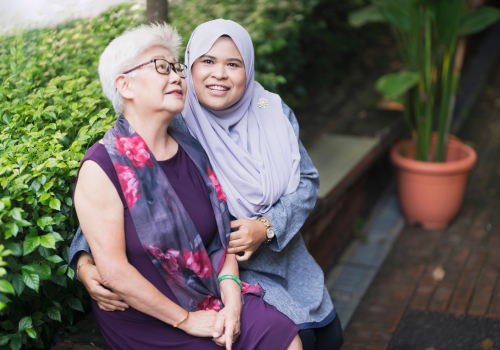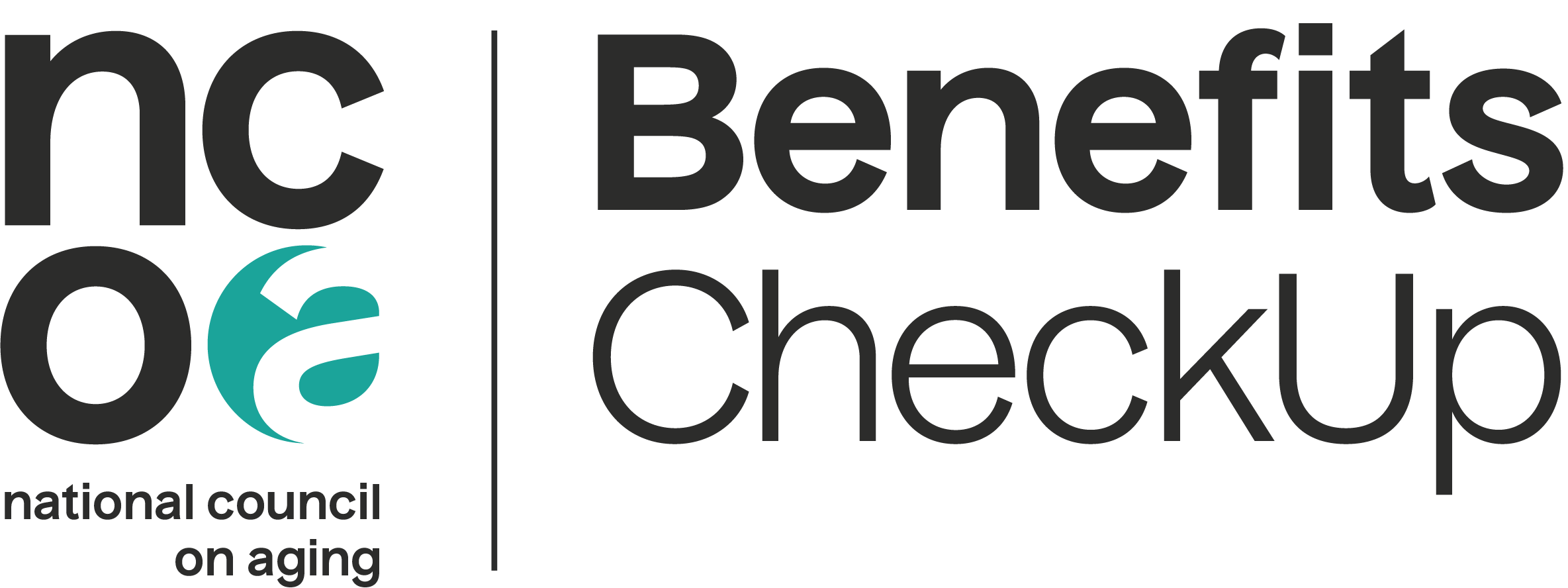Aging & Dementia Services
Families affected by dementia come across an array of healthcare, social services, advocacy organizations and private companies. It can be confusing about where to get help, what help is available, and what help exists where you live.
Formal care and services for dementia typically fall into three categories:
- Healthcare such as doctors, hospitals, and memory clinics.
- Community-based social care such as a council on aging, area agencies on aging, Alzheimer’s or related dementia organizations, adult day care, case management and home care companies.
- Long term residential care such as small group homes, assisted living, nursing homes or skilled nursing facilities, and hospice facilities.
Formal care and services might be accessed at different times throughout dementia for the person with symptoms or their primary family members. People with dementia have medical and non-medical needs. Family caregivers also have their own medical and non-medical needs. What type of care people can access varies by geographic region, financial resources, and other hurdles such as transportation options.
Table of Contents
When do I need to access healthcare services?
Healthcare services should be accessed when the person with dementia or caregiver requires a medical intervention. If possible, choose a health care provider who has knowledge of dementia and caregiving.

Primary Care and Specialists

It’s important to develop a good relationship with one’s primary care physician or geriatrician, where available. A geriatrician is a primary care doctor who has expertise with older adults. However, with so much change in the current healthcare environment, you might also see a physician’s assistant or nurse practitioner as your primary medical provider. You will see this person or visit an urgent care facility if you or the person with dementia are experiencing an acute illness.
Click When to See the Doctor for more information such as acute illnesses, medication management, and when behaviors mean something more acute is happening. In some cases, your primary care health provider may refer you to a neurologist, neuropsychologist, or geriatric psychiatrist to monitor specific symptoms related to dementia.
Hospitals

Hospitals should be visited in medical or psychiatric emergencies. In addition to symptoms of dementia, the person can still experience heart problems, stroke or mini-strokes, falls that result in concussions or bone breaks, and other serious medical problems that require immediate intervention. The hospital environment can be overwhelming and confusing to a person with dementia. The person will need an advocate by their side throughout the hospital experience. Keep in mind when a person requires anesthesia that they can experience symptoms of delirium afterwards. These symptoms should be monitored and noted as different from the person’s dementia. Ask your healthcare provider for more information about when to visit the hospital and additional complications due to delirium.
Caregivers are advocates.
Hospital environments are confusing and require that the caregiver advocates for the person with dementia.
Memory Clinics

Memory Clinics are specially designated healthcare centers where doctors from different specialties such as neurology, neuropsychology or psychiatry provide diagnostic services, clinical trials and other services specifically to people with Alzheimer’s disease and other types of dementia conditions. Some clinics, called Alzheimer’s Disease Research Centers, specialize in researching different aspects of dementia and are federally funded. There are over 30 of these clinics across the United States. Click here to see if there is a memory clinic in your area. The Eldercare Locator may also have information about non-federally funded memory clinics in your area.
What community support services are available?

Community-based services or community support services are often delivered by social service systems, non-profit organizations, or home care companies. These services enable people with dementia to remain living at home with supports. Don’t underestimate the vital services that can help the person with dementia remain at home and independent as long as possible. Caregivers can also benefit from community support services.
Helpful services include:
- Home-delivered meals (such as Meals on Wheels)
- Grocery shopping services
- Handyperson and Housekeeping services
- Counseling (for people with dementia and caregivers)
- Support Groups (for people with dementia and/or caregivers)
- Friendly visiting or friendly phone calls
- Paperwork and technology assistance
- Transportation
- Respite (where the caregiver gets temporary help to take a break from caregiving)
- Memory Cafes (social environments for people with dementia and their caregivers)
- Adult Day Services (9:00 a.m. – 5:00 p.m. locations with supervised social programs; some also provide personal care services such as bathing)
Many people are unaware of the services offered in their local communities with little to no cost by aging service organizations, libraries, community centers and faith-based institutions. Contact the Eldercare Locator for more information about what is available in your community.
A word on costs: Some services are prioritized based on need and income for eligible people. Yet, most services can also be privately funded. Caregiver programs are often free of charge. Its best to contact the Eldercare Locator to determine whether you are qualified. Consider that paying for some community support services privately may help delay more expensive care in the future. Click here to learn more about how formal care is financed.
How do I choose between care at home or residential care?

Each person with dementia has unique needs. Family or friends who become caregivers may have varying availability, skills, and resources. If the person’s needs and the caregiver’s ability to help don’t match up – this is when formal services are needed. Care at home can supplement care provided by the caregiver. Not every person with dementia will need or desire long term residential care, especially if community support services are utilized and working well.
If there is no caregiver or when 24-hour care at home is needed, then a person with dementia will eventually need to relocate to residential care. Using 24-hour paid home care can be more costly compared to residential care. If the primary caregiver becomes ill or can no longer provide care for other reasons, the person with dementia will need to relocate to residential care if no other caregiver is available. Click here to learn more about how will I know when the caregiver needs more help to provide care.
Choosing to relocate the person to residential long term care is not a failure. There are many benefits to living in long term care. For some people, long term residential care may be more desired than living at home. Long term residential care offers an environment where schedules, routines, and socialization can be beneficial to people with dementia. People living at home can be isolated from other people and the services that they need to live well with dementia. Click here to learn about what kind of help might be needed by stage of dementia.
Regardless of whether you use home care or residential care, or a combination – look for providers that are trained in dementia care. Many states require a minimum number of dementia training hours. Adult Day Care is another option for families seeking some support during weekdays where the person can have supervision, socialization, and meaningful activities. Memory Cafes are a newer concept which provides a social meet up for people with dementia and their caregivers together. Contact the Eldercare Locator to inquire what services exist in your area.
Benefits of Home Care

- Receive care in one’s own home
- Personalized services
- Good for people who don’t like group activities
- Helpful to supplement family caregiving abilities
- Valuable to give the caregiver a break
Cons
- Services can’t always happen at the day or time requested
- Inconsistency of care workers due to a workforce shortage
- The person can feel isolated, especially if they live alone with limited support
Benefits of Adult Day Care

- Hybrid between home care and residential care
- Less costly than home care or residential care
- Helpful for caregivers who work during the day or need a break a couple of days per week
- Some adult day providers offer personal care services
Cons
- Not every community has an adult day care
- Few locations focus specifically on people with dementia
Benefits of Residential Care

- Supervised care 24/7
- Social environments
- Routines
- Meals and activities included
- Caregiver can get needed rest and visit the person
Cons
- Less opportunity for personalized care
- The person may not like to be around other people
- The location may be far from home The caregiver needs to become an advocate to ensure the person’s needs are met
There are different types of residential care to consider including independent living, assisted living, and skilled nursing or nursing homes. Each setting is unique and differs based on geography and state requirements. Continuing Care Retirement Communities are also an option for individuals or couples to move into an independent residential setting which has additional care options including assisted living and skilled nursing when needed. Hospice and end of life care are also available in most settings. Click here to learn more about hospice care.
Remember, as a caregiver, you are doing your best.
You need to make a decision in the best interest of the person with dementia and for yourself.
How is formal care financed?
Formal care is any care that is not provided by family or friends. It can come from a local Council on Aging, home care companies, or long term residential care providers such as assisted living or nursing homes. A person’s need and income will determine how their care is financed.
The following government programs have different eligibility criteria to determine how care is funded:

- The Older American’s Act funds community-based services, which are services designed to help older people age in place at home. Services that are directly relevant to caring for a person with dementia at home include home-delivered meals, handyman and housekeeping services, caregiver support and education, respite which provides family caregivers a temporary rest from caregiving, and other services.
- Medicare partially covers doctor and outpatient visits, hospital visits and post-hospital rehabilitation, and prescription drugs for people 65 and older.
- Medicaid funds health, personal care, and long term care for people with low incomes.
- Social Security Disability Insurance covers people with disabilities. People with disabilities due to dementia, especially with young onset dementia under the age of 65, should apply under the Compassionate Allowances designation where multiple types of dementia are approved including Alzheimer’s disease, Fronto-temporal dementia (FTD), Primary Progressive Aphasia (PPA), and mixed dementias.
- Veteran’s Administration funds the care needs of veterans and their families with healthcare, home health, geriatric and extended care.
- City and State funds vary in what they fund to fill gaps not met by other government programs.
Many people falsely believe Medicare pays for long term care. While Medicare pays for post-hospital rehabilitation, it does not pay for long term care for long periods of time where there is no medical need. People living with dementia mostly need help with activities of daily living and personal care tasks. Much of long term care is privately financed by individuals until the loss of income makes the person eligible for Medicaid.
People with dementia can live a long time after first symptoms are noticed – years and possibly decades. It may be helpful to think about how finances can be used in each stage (early, middle and late) to enhance the person’s quality of life.
The cost of different types of care can vary depending on where you live.
- The average adult day service may charge $30-$90 per day, but hourly rates might be available if a whole day is not required.
- Home care fees average $25 per hour with a minimum number of hours required.
- Long term care, including assisted living or nursing homes, range from $150-$300 per day with annual living costs between $80,000 to $120,000 per year.
Caregivers’ needs and resources should also be considered in a financial plan. Families may benefit from consulting a financial planner or an elder law attorney. Choose professionals who have expertise and understanding of dementia. Search for elder law attorneys at www.naela.org.
How do I find services? Where do I start?
Family caregivers may not realize they need outside help from time to time. Where to find help and knowing what kind of help exists can be confusing. Help and advice is available and completely free of charge. The following organizations and services are a good place to start.
The Meaning & Hope Institute
The Meaning & Hope Institute is a program of Duet: Partners In Health & Aging, a 501(c) (3) not-for-profit organization based in Phoenix, Arizona. The Institute provides services and support for America’s approximately 15 million family and friends who are caring for someone who has dementia. We also train and certify facilitators for Finding Meaning and Hope to equip them with the necessary information and resources to bring this program to family caregivers in their communities.
Hours: Monday to Friday | 9:00 a.m. – 4:30 p.m. (AZ Time)
Phone: 602-274-5022
Eldercare Locator
The Eldercare Locator is a government service administered by the US Administration on Aging. Speak to senior service professionals to find information about support services, housing, elder rights, insurance and benefits, health, transportation and more.
Hours: Monday to Friday | 8:00 a.m. – 9:00 p.m. (EST)
Phone: 1-800-677-1116
BenefitsCheckUp
BenefitsCheckUp is a service by the National Council on Aging. It is a comprehensive online tool to search for benefits such as health care, medicine, food, utilities assistance, transportation, adult day care, long term care, tax help, legal aid and more. Search and apply online or get help from a benefits counselor.
Hours: Monday to Friday | 8:00 a.m. – 7:00 p.m. (EST)
Phone: 1-800-794-6559
Direct Service Finders
The information on this page was developed by Nicole Batsch, Ph.D. and is for educational purposes.
For individualized medical guidance, consult your physician.




